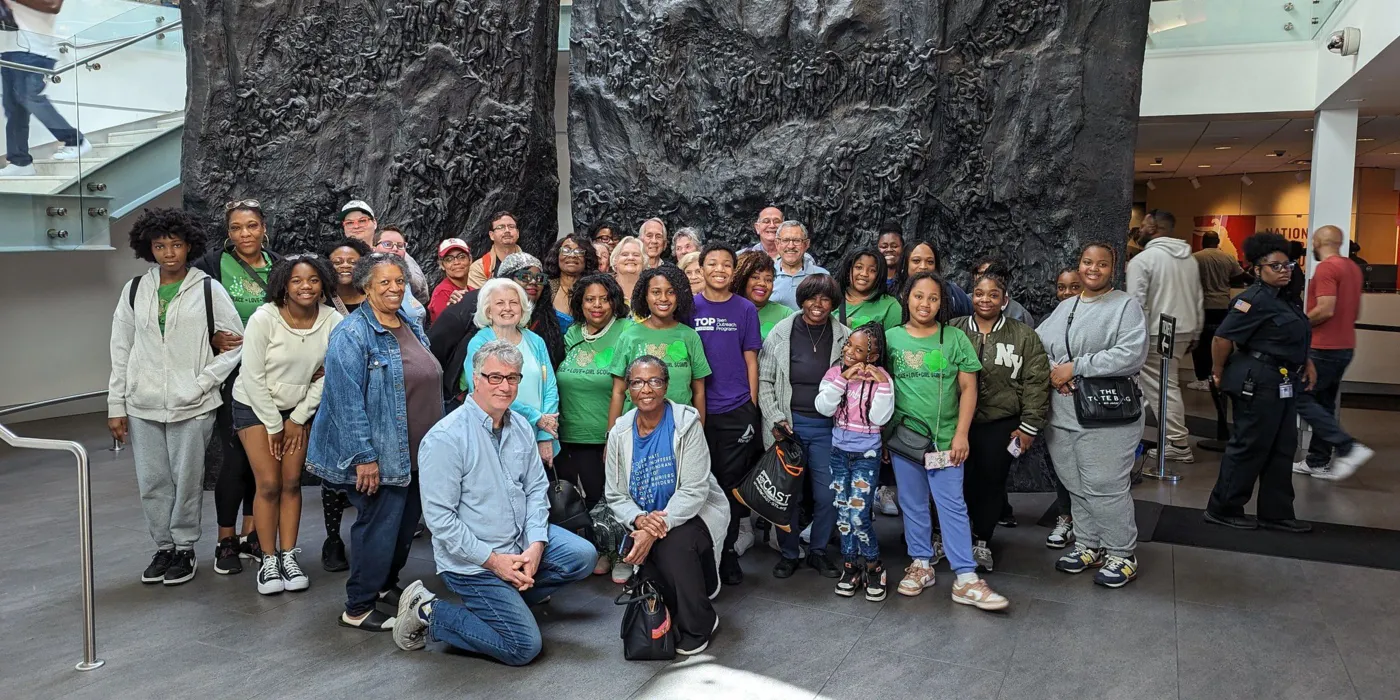"People of faith must challenge the tragedy of gun violence and I lend my voice to that challenge,” said the Rt. Rev. Wayne Smith, Bishop of the Episcopal Diocese of Missouri. “The devastation and grief that follow mass shootings call for prayer, certainly, but they also require action from us. The gun violence in our region, happening nearly every day, calls for the same." Today Bishop Smith, announced the appointment of the Rev. Marc D. Smith, Ph.D., as Bishop’s Deputy for Gun Violence Prevention.
Through the lens of public health.“The issue of gun violence is a public health issue,” said Dr. Smith. The position is first and foremost as a convener and facilitator of people of faith and people with expertise in public health around the issue of gun violence prevention.
“Many activities are going on in our community around gun violence--in our hospitals and universities, as well as in our faith communities--and all are important,” said Dr. Smith. Up to this point, collaboration and specific interventions have been limited.
Not just to do good. The second goal of this new collaboration seeks to identify specific strategies that show promise in addressing some aspect of the ongoing crisis in gun violence. Not just to do good, said Dr. Smith, but to document and evaluate the outcomes through rigorous scientific research. If we can't learn from experience or replicate results, the benefit of this ministry is really limited.
Changing people's perception of the problem. This is a crisis, said Bishop Smith. The third goal is to weave gun violence prevention into the fabric of church life and into the community. To no longer accept gun violence as simply part of the urban landscape, we must actively engage in this ministry, added Dr. Smith. Both Smiths are committed to helping the church own the issue, much as it has embraced issues of hunger, and continues its work on racism. The plan is to use the grant making process to bind organized faith communities into this task of addressing gun violence, and to share that with the broader community.
Orlando and St. Louis. "Living in St. Louis makes me aware of gun violence and its cost, every day of my life,” said Bishop Smith. “In this context, the tragedy that happened in Orlando provides no new learning for me. But there is learning because this tragedy happened in a gay bar. Dear friends and loved ones in the LGBT community have known what it is to live with the threat of violence, and sometimes violence itself. Orlando has held this reality before all of us, and it has drawn me into a deeper solidarity with a community so often targeted for violence.”
“At this raw moment,” the bishop continued, “I am very glad that the Diocese of Missouri is poised to take tangible action in response to the epidemic of gun violence. This, I believe, is where the Crucified One is leading us."
On Tuesdays, we bury our children. Soon after he was appointed head priest at Ascension Episcopal Church in Northwoods, Dr. Smith encountered gun violence. A 13-yr old was killed in a drive-by shooting and her grandmother was a food pantry client at Ascension. The wake and funeral were filled with family and friends and for many the scene had become common place. “Every life is precious under every circumstance,” said Dr. Smith. “Part of our responsibility, part of my responsibility is to shake things up and make this scenario too uncomfortable for it to be common place.”
Not legislative advocacy. One thing Bishop Smith's appointment is not is as a political, legislative advocate. While Dr. Smith hopes that people of faith and people in healthcare may choose to shape legislation, organizationally that will not be our role. Public debate about the many factors associated with gun violence is essential, but our work will be to intervene directly to decrease these numbers now. This part of the work is missional to Dr. Smith, and he plans to share this message through church pulpits.
We already know some things that work. We've learned from hospital chaplains and psych teams that direct intervention in the hospital with gunshot wound patients is effective, said Dr. Smith. Much as the medical trauma team comes together to aggressively heal the physical condition, that hospital moment can be a catalyst to change the course of one's life. Using a more directed technique called 'motivational interviewing' some appreciable number of gunshot victims can take that moment to change the focus and activities of their lives, said Dr. Smith. Social support systems in the community need to be developed to facilitate and sustain these changes.
Context of this appointment. This position began as a conversation two years ago at an Episcopal Presbyterian Health Trust (EPHT) board meeting which Bishop Smith chairs and Dr. Smith serves as member. It came from the desire to “do something strategic, proactive, and highly focused” in the area of gun violence prevention, said Dr. Smith.
Before he was ordained an Episcopal priest in June of 2011, Dr. Smith was Chief Executive Officer and President of the Missouri Hospital Association from 1998 to September 2009. He led the association in access to health care services for the poor, and enhanced the transparency of hospital operations, financing and quality.
Resolve. The massacre in Orlando heightens our attention to gun violence. But the face of gun violence is every bit as much the 18 year old in north city as the club attendee in Orlando or the 6 year old in Sandy Hook. Dr Smith added, “We can and must do better for all of them.”
